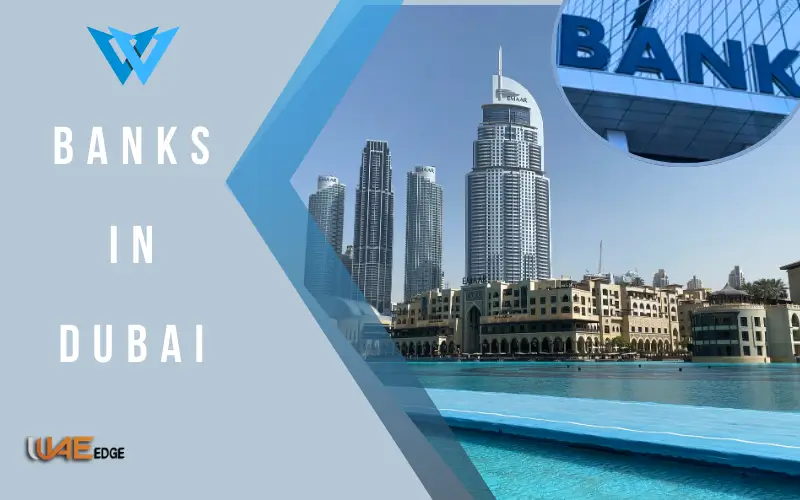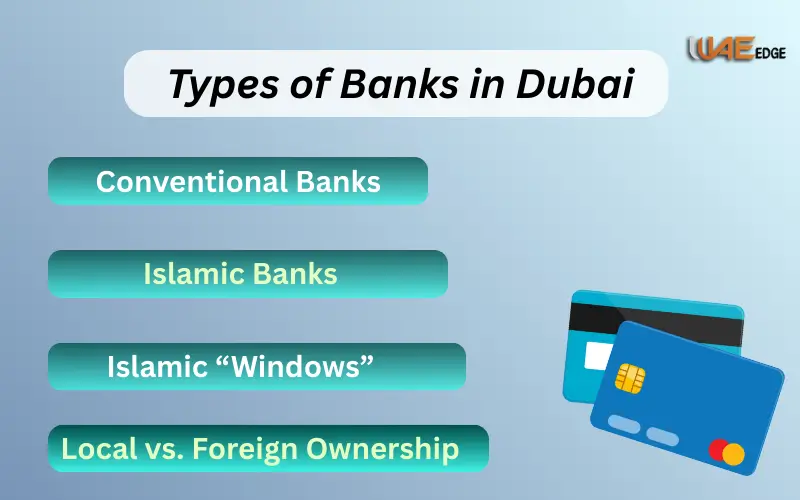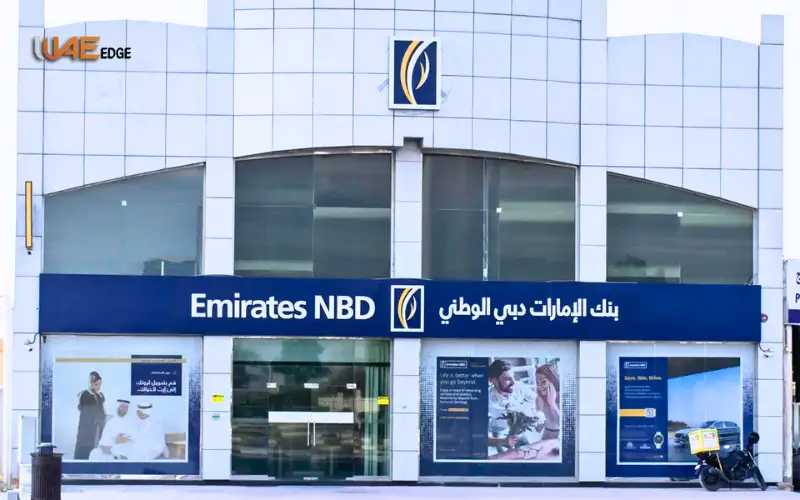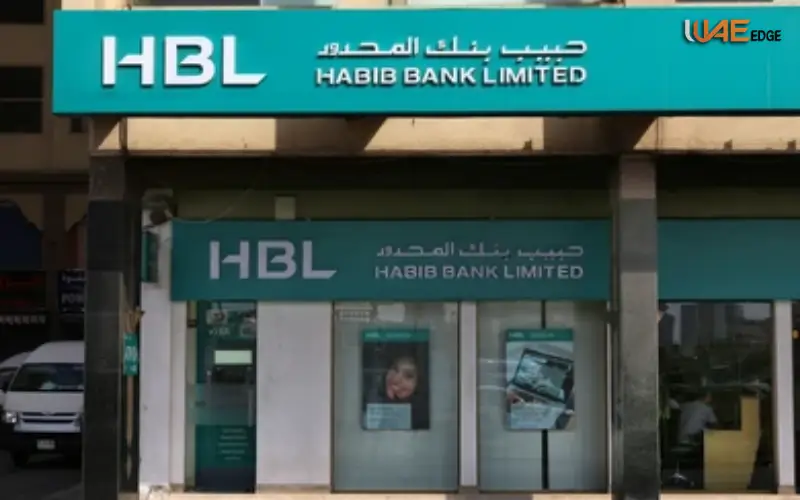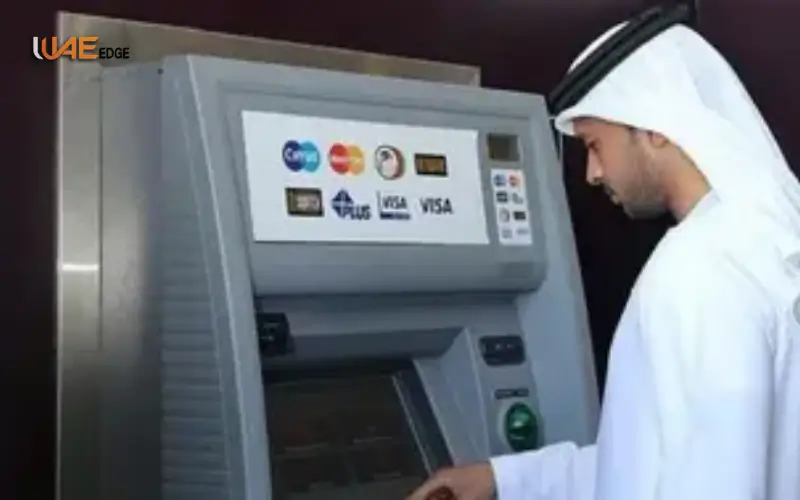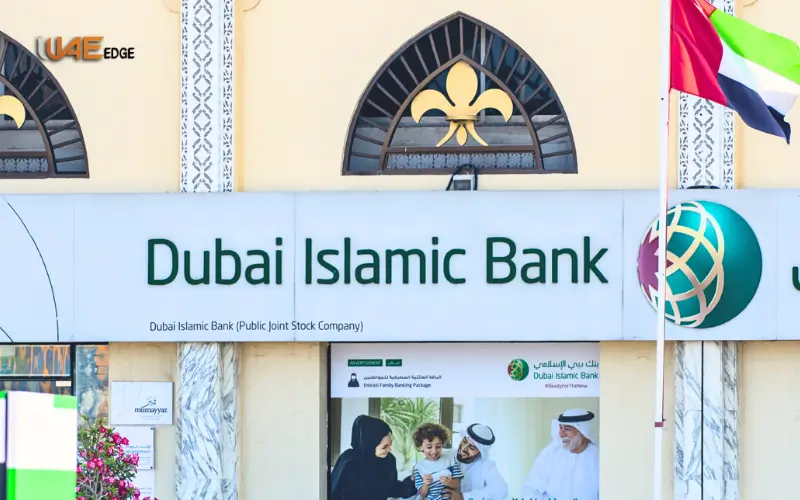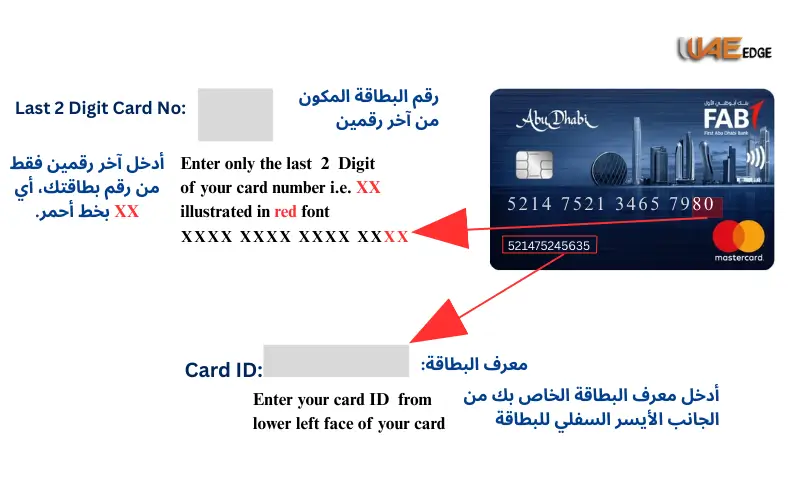Directory of Banks in Dubai
Dubai is among the vibrant financial centers of the Middle East. Its banking sector supports trade, real estate, investment and day-to-day personal finance of millions of residents and businesses. This guide describes the banking environment in Dubai – what type of banks are in it, what products and services they provide, how they are regulated, how to open and use an account.
Introduction to the Banking Scene in the UAE
The first one is the role of Dubai as a financial hub. Lying at the intersection of Europe, Asia and Africa, Dubai has built an elaborate banking system to facilitate international commerce and a high-growth economy. Banks in Dubai are also used by both large corporate players and individual residents to do all aspects of simple savings accounts to complicated project finance.
The city of Dubai is also a good target for international and investment banks due to its many free zones, especially the Dubai International Financial Centre (DIFC).
Who Regulates Banks
The Central Bank of the UAE (CBUAE) controls all banks in Dubai. It is the central bank that determines the licensing regulations, anti-money-laundering and counter-terrorism-financing rules, and regulates the governance of Islamic banking.
Federal law offers the legal structure of conventional and Islamic banks. The CBUAE issues laws on all aspects of consumer protection in electronic payment systems and Shariah governance.
Main Types of Banks in Dubai
Dubai banks vary according to ownership, legal structure and the mode of operations being conventional or Islamic.
Conventional Banks
Traditional banks operate using normal banking practices including charging interest on lent funds and charging interest on deposits. Numerous local and international banks in Dubai are based on this model.
Islamic Banks
Islamic banks are required to adhere to the Shariah law. They do not pay or charge interest but make use of contracts like Murabaha (cost-plus sale), Ijarah (leasing) and Musharakaah (partnership). A Shariah board reviews all the products.
Islamic “Windows”
There are some traditional banks that have an Islamic window, a special unit that offers Shariah-compliant products on top of the conventional services. These windows are managed and overseen independently.
Local vs. Foreign Ownership
- The local banks are incorporated and based in the UAE.
- Multinational banks are located abroad although they have branches in Dubai that are licensed in the UAE.
Digital and Niche Banks
An increasing number of banks in Dubai are digital-first, meaning they provide app-based services and very minimal or no branch infrastructure. Other ones concentrate on a particular niche such as wealth management, trade finance or community banking.
List of Banks in Dubai
Fully Islamic Banks
- Dubai Islamic Bank (DIB): Incorporated in 1975, DIB is considered to be the first full-service Islamic bank in the world. It provides business and investment products as well as personal products in Shariah-based principles.
- Emirates Islamic Bank: It is a bank that is known to integrate technology with Islamic finance, offers retail and corporate products, credit cards, home finance and online banking.
- Sharjah Islamic Bank (SIB): SIB is a traditional bank that converted into a full Shariah bank in 2004. It currently provides a full-fledged Islamic service holding an extensive branch and online presence.
- Ruya Community Islamic Bank: A digital-first, new Islamic bank that is licensed and aims at transparent, low or no-balance-based services via its apps.
Banks having Islamic Windows
Emirates NBD: This is one of the largest banking groups of the UAE which provides retail, corporate and investment services along with Islamic products by its affiliates.
Mashreq Bank: Mashreq Bank was founded in 1967 and provides conventional and Islamic services and is considered innovative and digital.
National Bank of Fujairah (NBF): offers a variety of corporate, trade and retail services and an NBF Islamic brand of Shariah-compliant products.
Foreign International Banks
HSBC UAE: Provides retail banking services, wealth management banking and corporate banking to individuals and companies.
Standard Chartered Bank: Provides retail, SME and trade finance products and has been working in the UAE for decades.
Citibank UAE: Specialises in consumer banking and cards, corporate and investment services.
Habib Bank Limited (HBL): Provides retail and remittance services to the huge South Asian expatriate market.
Banking Careers in Dubai: Salary Overview
Retail and Customer Service Roles – Average Salaries in Dubai Banks
| Position |
Monthly Salary (AED) |
Typical Benefits |
| Teller / Cashier | 5,000 – 8,000 | Medical insurance, annual leave |
| Customer Service Officer | 6,000 – 10,000 | Training programs, incentive pay |
| Relationship Officer (Retail) | 8,000 – 12,000 | Performance bonus, housing allowance |
| Branch Operations Officer | 9,000 – 14,000 | Annual bonus, transport allowance |
Mid-Level Specialist and Managerial Roles – Average Salaries
Position |
Monthly Salary (AED) |
Typical Benefits |
| Credit Analyst | 12,000 – 18,000 | Professional development, medical cover |
| Compliance Officer | 13,000 – 20,000 | Education allowance, annual flight tickets |
| Islamic Banking Product Manager | 15,000 – 22,000 | Housing allowance, profit-sharing bonus |
| Branch Manager | 18,000 – 28,000 | Company car, medical insurance, annual bonus |
Senior and Executive Roles – Average Salaries in Dubai’s Banking Sector
Position |
Monthly Salary (AED) |
Typical Benefits |
| Corporate Relationship Manager | 20,000 – 30,000 | High commissions, housing, schooling benefits |
| Treasury Manager | 22,000 – 35,000 | Performance-based bonus, memberships |
| Head of Compliance | 30,000 – 45,000 | Full medical cover, relocation benefits |
| Chief Financial Officer (Bank) | 45,000 – 70,000+ | Executive housing, car, profit share, long-term incentives |
Support and Back-Office Positions – Average Salaries
Position |
Monthly Salary (AED) |
Typical Benefits |
| Call Center Agent | 4,000 – 6,000 | Incentive pay, medical insurance |
| IT Support Analyst | 8,000 – 14,000 | Certification sponsorship, annual leave |
| HR Specialist | 10,000 – 16,000 | Training, transport allowance |
| Finance Officer | 11,000 – 18,000 | Education allowance, end-of-service benefits |
Graduate & Internship Opportunities – Stipends and Allowances
| Position | Monthly Salary (AED) | Typical Benefits |
| Graduate Trainee | 4,500 – 7,500 | Rotational program, mentorship |
| Intern (Paid) | 2,000 – 4,000 | Allowance, training certificates |
Regulatory and Legal Environment
Federal Laws & Federal Bank Regulations
The conventional and Islamic banking activities are covered by federal laws. The CBUAE provides specifications on licensing regulations, risk management regulations, Shariah regulations, anti-money-laundering regulations, and consumer protection regulations.
Shariah Governance
Islamic banks are supposed to have their own Shariah boards to scrutinize and sanction all products. The conventional banks, which have an Islamic window, also have to obey. The non-compliance may lead to fines or limitations. There have recently been multimillion-dirham fines and temporary onboarding bans of non-compliant banks imposed by CBUAE.
Digital Payment Services
The central bank also controls payment systems, stored value facilities and emerging services like Buy Now Pay Later (BNPL). Any bank or other fintech company that offers such products has to be licensed and subject to consumer-protection regulations.
Products and Services
Retail Banking
- Current savings in AED and major foreign currencies.
- Individual finance (loans) or Islamic analogies such as Murabaha.
- Credit and debit cards, such as Shariah-compliant credit cards.
- Home finance and mortgages.
- Online banking via mobile applications and websites.
Business and Corporate Banking
- Letters of credit and trade finance.
- Project and working-capital financing.
- Cash, foreign exchange and treasury.
- Company online payment and payroll.
Investment Service: Wealth
- Wealth management and banking for high-net-worth customers.
- Sukuk and Shariah-compliant Islamic investments.
- Capital markets advisory and underwriting.
Islamic Financial Products
- Murabaha: Bank purchases goods and resells to the customer at a markup.
- Ijarah: Leasing as opposed to a charged loan.
- Mudharabah / Musharakah: Profit-sharing Partnerships.
- Takaful: The Islamic insurance which is usually provided by bank affiliates.
Digital and Fintech Services
- UAE PASS and video verification account opening.
- On-time transfer, bill payments and card controls.
- No-fee neo banks and community banks.
Opening a Bank Account in Dubai
Eligibility
Standard accounts can be opened by residents who have a UAE visa and an Emirates ID. Non-resident accounts are also common in many banks but they may be more strict in terms of documentation and minimum balances.
Required Documents
- Passport and UAE visa.
- Emirates ID.
- Evidence of residence (utility bill, tenancy contract).
- Salary accounts category: salary certificate or employment letter.
Process and Timeline
The process of opening simple retail accounts at the digital banks can be fast; more complicated accounts or credit facilities can take days or weeks to be opened because of the verification and compliance checks.
Fees and Minimum Balances
Minimum balances differ a great deal. Others do not charge them provided they pay the salary monthly. Newer online banks may offer no minimum balance accounts. Check ATM withdrawal, transfer and account maintenance charges at all times.
Trends Influenced the Banking Industry in Dubai
Rise of Islamic Banking
Islamic assets constitute a major portion of the UAE banking market and are expanding quickly than conventional assets. The ethical and transparent character of the Shariah-compliant finance attracts customers (some of whom may be non-Muslims).
Stronger Regulation
The central bank has been putting increased oversight on Shariah compliance, short-term lending and electronic payments. Banks will have to invest in governance and compliance in order to escape penalties.
Digital Transformation
The investor in digital platforms is high in most banks. Digital-only new entrants such as Ruya Community Islamic Bank and Al Maryah Community Bank are onboarding fast and with low fees.
Customer Expectations
Customers desire ease, clear charges and fair finance. The quality of mobile apps, turnaround times, and the depth of product offerings are some of the aspects that banks are competing over.
Choosing the Right Bank
Factors to Compare
- Islamic vs Conventional: Choose what you want to do according to your ethical or religious choice.
- Minimum Balance and Fees: Look after the latent fees and punishments.
- Digital Convenience: Compare online services and the quality of mobile apps and open an account online.
- Branch and ATM Network: Significant in case you require physical service.
- Product Range: Banks provide home finance, car loans, wealth management,and business banking.
- Reputation and Stability: Take into consideration the size of the bank, ratings and track record.
Challenges and Risks
Compliance and Governance
Banks that violate anti-money-laundering regulations or Shariah principles stand to face hefty penalties, prohibition of the addition of new customers or in the worst-case scenario, the loss of a licence.
Competition
Due to the presence of numerous banks and fintechs that are selling similar products, the margins are closing in and it becomes more difficult to retain customers.
Cybersecurity
With the transition of banking to the Internet, there are increased cyber threats. Banks and their customers should secure their data and access secure channels.
Illustrative Examples
Dubai Islamic Bank
The first Islamic finance in the world. Provides full-fledged business banking and personal banking on Shariah terms and conditions and has a robust network of branches as well as advanced electronic services.
Ruya Community Islamic Bank
A new, mobile-based bank specializing in transparent Islamic banking to individuals and SMEs. The onboarding process is fast and there are minimal or no minimum balance requirements.
Regulatory Enforcement
Tougher supervision can be seen in the suspension of an Islamic window of one bank by the central bank in 2025 and the imposition of millions of dirhams in fines on a bank because of governance failures.
Conclusion
The banking sector of Dubai is heterogeneous, highly controlled and more digital. Customers have the options of long-established local banks, international giants and innovative digital-only players. Knowing the distinction between standard and Islamic banking, comparing fees and minimum account balances, and evaluating the digital capabilities of a bank will assist you in selecting the appropriate bank.
As one of the most rapidly developing banking and financial destinations globally, Dubai may continue to draw a significant number of prospective customers due to more regulation, increased Shariah-compliant products and services, and a fintech flood.
Frequently Asked Questions
1. What is the best bank in Dubai to be used by expats?
Some banks also serve the expatriates exclusively, have multilingual employees, international remittance plans and zero-balance accounts. Popular ones would be Emirates NBD, HSBC and Standard Chartered because of their international presence and the simplicity of transfers abroad.
2. What is the time it takes to open a bank account in Dubai?
Simple retail accounts can be approved in a matter of a few hours by digital banks. The conventional banks will need two to seven working days to do so based on verification, salary transfers arrangements and compliance checks.
3. Is it possible to open a bank account in Dubai without a residence visa?
There are certain banks with non-resident accounts, but the minimum balance is usually higher, the services provided are more limited and the documentation is also much higher.
4. Does Dubai have banks that do not have minimum balances?
Yes. A number of digital-only banks and some more traditional banks have zero or extremely low minimum balance accounts provided you satisfy several conditions such as salary transfer.
5. How secure is my money in Dubai banks?
The Dubai banks are under strict control of the Central Bank of UAE. They are required to comply with capital adequacy, risk management and anti-money-laundering requirements, and this makes the system comparatively very safe as opposed to most other markets.
Related Blog: Navigating Sheikh Mohammed Bin Zayed Road E311 The Ultimate Guide



